It may not be a race, but the Israeli healthcare system appears to be the best in the world despite its many shortcomings.
Israel has continued to lead the world in providing coronavirus vaccines, having already administered the most vaccines per capita and leaving the rest of the planet far behind.
6 View gallery
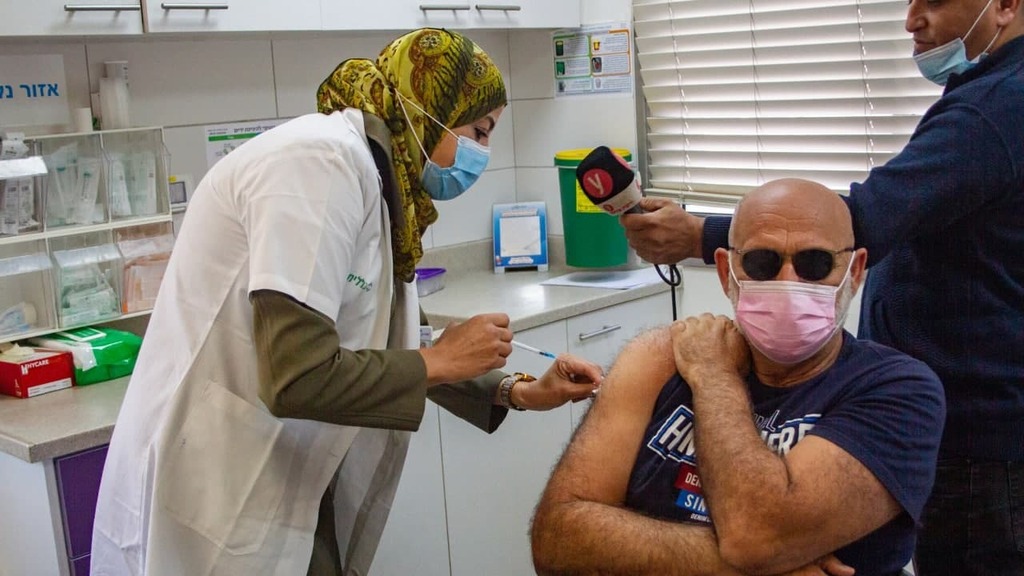

A man receives his first dose of the coronavirus vaccine in central Israel
(Photo: Ido Erez)
The vaccination campaign that began on December 20, just hours after Prime Minister Benjamin Netanyahu and Health Minister Yuli Edelstein publicly received their shots, began with vaccines administered to health workers who were joined just one day later by the over 60 population and those with underlying conditions.
Now people with chronic illnesses and those over 55 are already being called in to get their shots.
6 View gallery


People line up to receive their first dose of the coronavirus vaccine in Tel Aviv
(Photo: Amit Hover)
Contrary to early alarmist predictions warning that many would be mistrustful of the shots, tens of thousands of people have flocked every day to the vaccination centers to receive what is not only a life-saving vaccine but also the only hope that their lives as they once knew them could resume.
Netanyahu deserves credit for successfully negotiating with Pfizer CEO Albert Bourla to get the vaccines quickly. Israel agreed to pay dearly for the vaccines - more than three times what the U.S. is paying - and rightly so.
But most accolades must go to the country's four health funds, for their successful roll out of the most logistically complicated operation in Israel's history.
They met the challenge given them by the government to inoculate hundreds of thousands of people each day.
While vaccination efforts in the U.S. and in Britain are slow and cumbersome, and many countries in Europe have not even begun to inoculate their populations, Israel continues to provide the vaccines quickly and efficiently.
The existence of Israel's health maintenance organizations can actually be traced back to an accident.
In 1911, Jewish pioneers wishing to settle the land of Israel arrived to work as workers on farms owned by Jewish philanthropist Barron Edmond James de Rothschild.
Life was hard and life expectancy was 50. Disease spread, food was in short supply and medical care was scarce.
Then tragedy struck. Baruch Priver, a fruit picker in an orchard in Ein Ganim, where Petah Tikva stands today, mangled his arm in a water pump.
He was loaded onto a horse-drawn cart and taken the long and arduous way to a hospital where doctors had no choice but to amputate.
His comrades, led by famed Zionist activist Berl Katznelson, were concerned about the lack of medical care and by its cost where it was available.
"We must establish a fund, a kupa, to deal with medical expenses for all laborers," Katznelson said.
6 View gallery
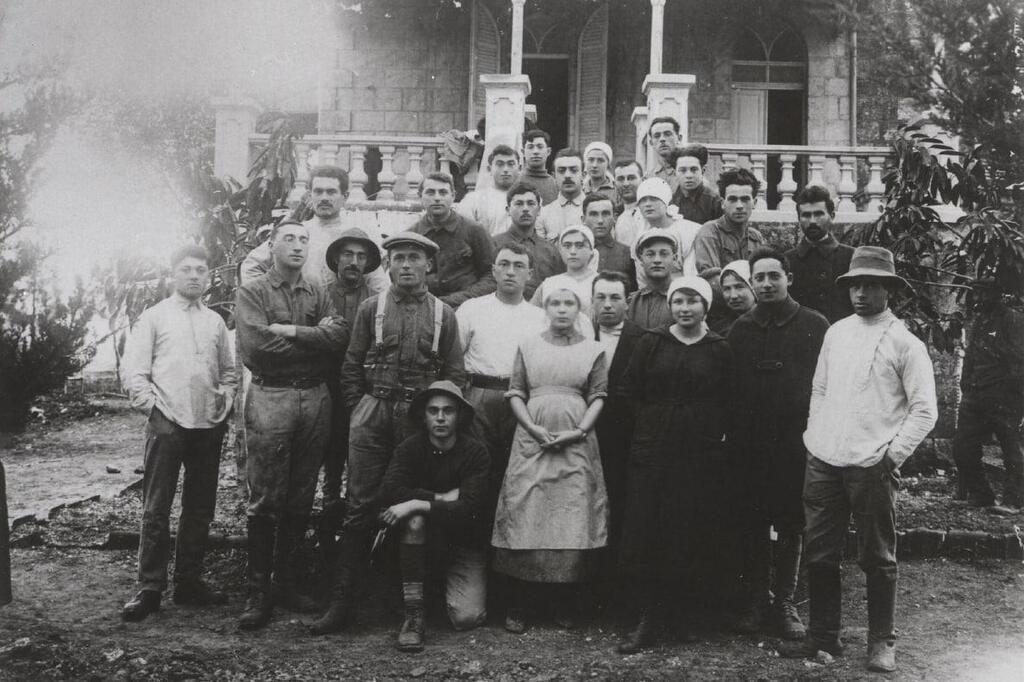

Members of the first health fund established in pre-state Palestine in 1911
(Photo: Courtesy of the Lavon Collection)
Prof. Shifra Shvarts of Ben-Gurion University's Center of Medical Education, an expert in the history of healthcare, explains:
"At the time, the idea of health insurance was already being considered in Europe, with a system that provided healthcare paid in part by employers," she says.
"But in pre-state Palestine, under the rule of the Ottoman Empire, the wellbeing of the Jewish workers was of no concern. So the pioneers decided to take matters into their own hands, reaching out to the existing medical association and established the first health fund."
Each worker contributed a percentage of their pay, granting them membership in the fund that covered the expenses of family members and those temporarily out of work as well.
The first clinic was opened in a tent and a nurse was assigned to run it.
6 View gallery
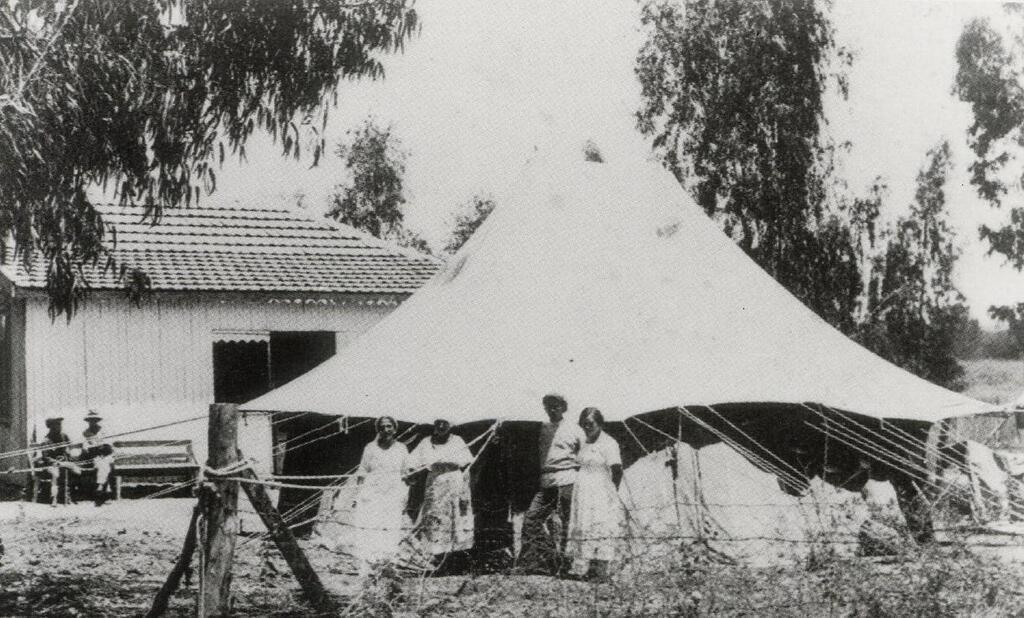

The first health clinic providing services to health fund members in Ein Ganim in 1911
(Photo: Courtesy of the Lavon collection )
Soon more clinics were opened around the country. They were organized by region and expanded so greatly so that by 1920, the newly established Histadrut labor federation adopted the clinics and the first national health fund came into existence.
Today, we call that health fund Clalit (the general fund) and it serves more than half of the population.
A second fund soon followed, organized by farmers, teachers and clerks, who were not followers of Katznelson's socialist world view.
They set up their own network of clinics, some in urban areas and others in rural communities. The network became Leumit (the national fund) in the 1930s and today provides care for 700,000 Israelis.
In 1941, a group of athletes broke away from the labor union and set up their own fund to provide healthcare for themselves and their families. They called it Maccabi, named for the sports-based youth movement and a nod to the Maccabees of Jewish history.
It provided care mostly in the big cities and modeled itself on a German system, signing cooperation agreements with pharmacies and doctors. Today it is the second-largest kupa in Israel and has 2.3 million members.
6 View gallery
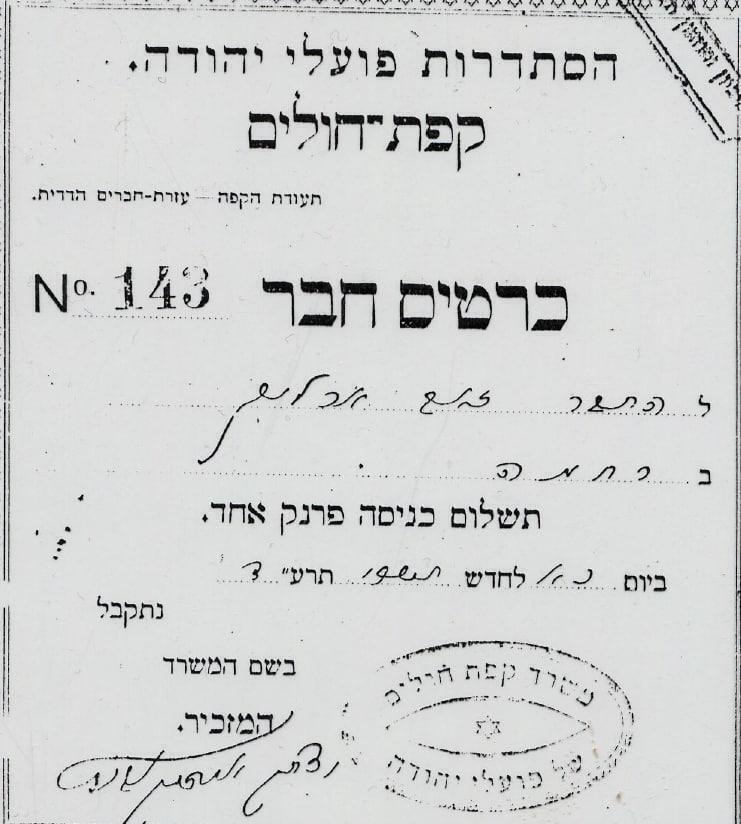

A membership card for a pre-state health fund in 1913-14
(Photo: Courtesy of Prof. Shifra Shvarts)
Prof. Schwarz is in no doubt that Israelis enjoy a strong public healthcare system that provides services all over the country.
"We have a network of clinics providing basic medical care everywhere. In the United States, people have to sometimes travel hours to see their doctor. We have a clinic in every community," she says.
"It all originated with the need of workers during the Ottoman rule, to have a doctor and nurse within reach so that they would not have to travel by cart for hours before they received medical care."
But it is not only the presence of health clinics in every corner of the country that has contributed to a successful inoculation drive.
Pfizer was motivated to supply Israel with vaccines because of the four funds' computerized system that is now being studied by many countries.
6 View gallery
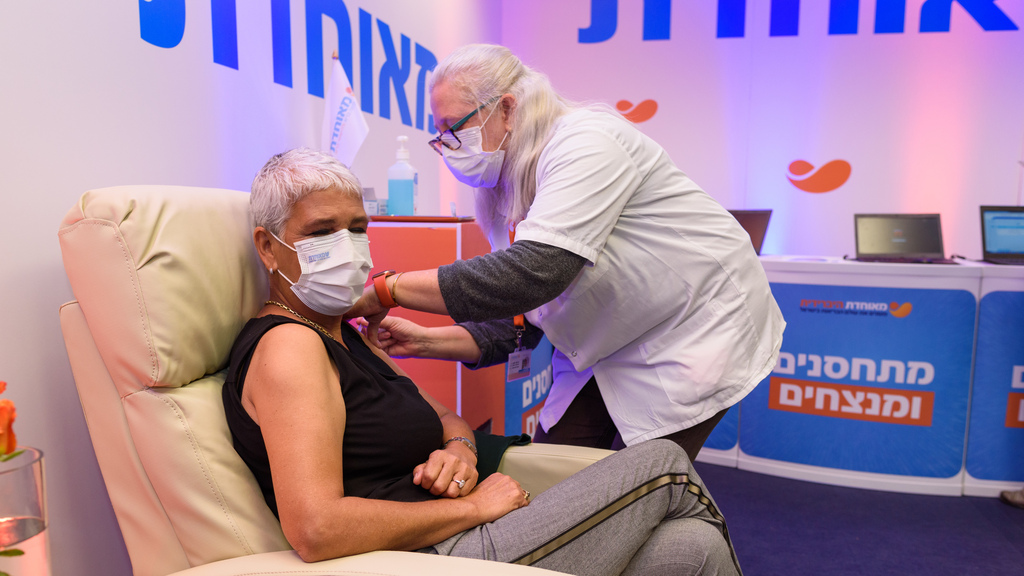

A woman receives her first dose of the coronavirus vaccine in Jerusalem
(Photo: Shalev Shalom)
"The funds can access the medical information of each patient," Prof. Shvarts says.
"They can contact patients quickly to schedule an appointment to get the vaccine. This kind of a computerized system does not exist in many other countries, including the United States, and it is key to a successful roll out of a logistical operation of this magnitude."
"When we look back at history, we see an outbreak of infectious disease every hundred years or so," Shvarts says.
"But we can also see that humanity has prevailed and will prevail this time as well."
On Sunday, Israel vaccinated its one millionth citizen - a resident of the Arab city of Umm al-Fahm - and thanks to the vision of those Zionist pioneers, the whole country will soon be moving from rescue to recovery.

